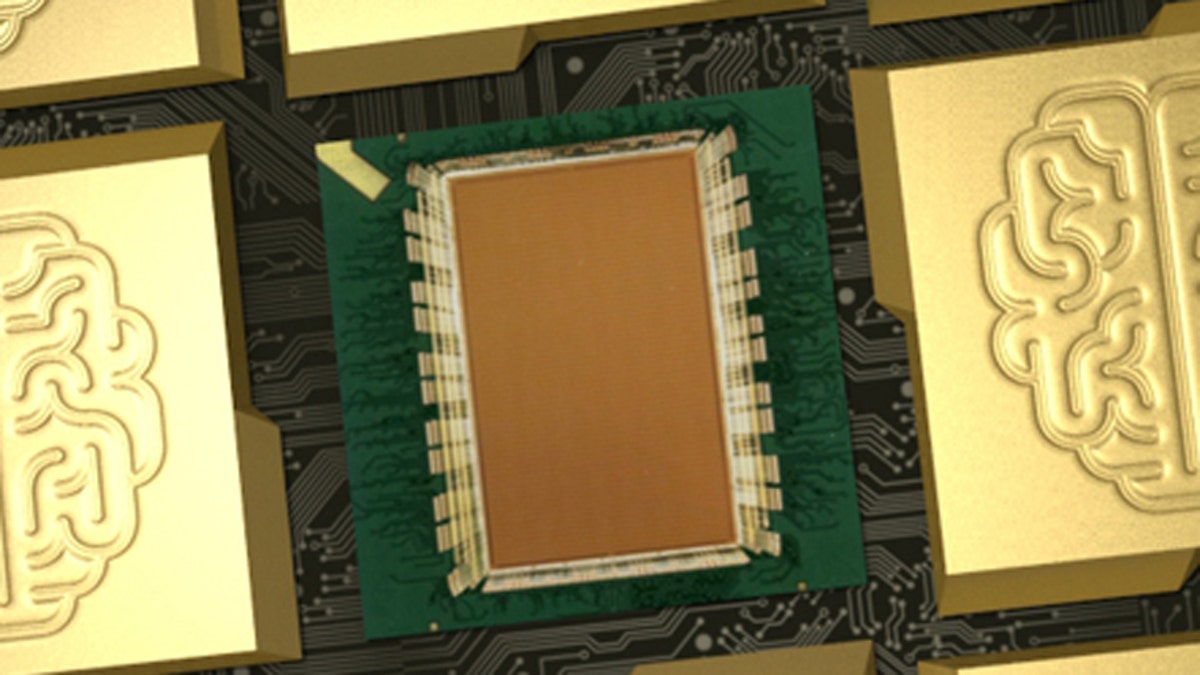
(IBM)
Computer scientists at IBM have developed a brain-inspired computer chip which could pave the way for super-intelligent sensory devices.
“Imagine a computer that can understand your environment,” Dharmendra Modha, IBM’s chief scientist for brain-inspired computing, told FoxNews.com. “This provides a sixth sense to computing.”
The new chip, called TrueNorth, will enable “low power sensory processing in mobile devices,” according to the IBM scientist. One potential use could be in glasses for the visually impaired which function as a sort of high-tech guide dog, he added.
The chip was born out of the SyNAPSE, a Defense Advanced Research Projects Agency (DARPA) - funded project, which also involved Cornell Tech and Zurich, Switzerland-based neurotechnology specialist iniLabs. SyNAPSE aims to develop computer systems that can handle large volumes of data with minimal power, similar to how the human brain functions.
Containing 5.4 billion transistors, TrueNorth consumes just 70 milliwatts of power, significantly less than a typical microprocessor. IBM says that the chip’s intense processing power, combined with its low energy consumption, enable it to compute a variety of sensory data, such as images, sound, and even smell.
“We have moved memory, computation and communication in extremely close proximity on the chip,” explained Modha. “The chip is essentially a neurosynaptic supercomputer the size of a postage stamp, the weight of a feather and with the power consumption of a hearing aid.”
IBM, which typically builds chips for high-end corporate and government users, turned to gadget giant Samsung to build TrueNorth.
“It is an astonishing achievement to leverage a process traditionally used for commercially available, low-power mobile devices to deliver a chip that emulates the human brain by processing extreme amounts of sensory information with very little power,” said Shawn Han, Samsung’s vice president of Foundry Marketing, in a statement.
Potential uses for TrueNorth, however, are still at the conceptual phase, according to Modha, who declined to give a specific date for when gadgets using the chip will appear on the market.
Follow James Rogers on Twitter @jamesjrogers
